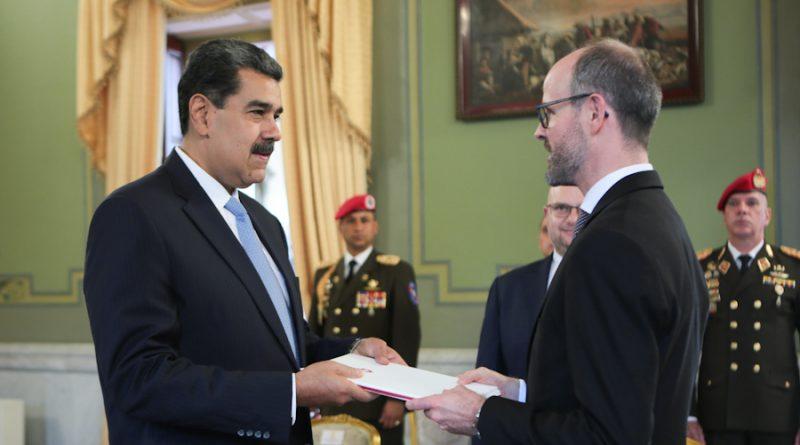The ambassador of the Swiss Confederation, Gilles Roduit, delivered credentials to the constitutional president of the Bolivarian Republic of Venezuela, Nicolás Maduro, this Friday at Miraflores Palace, with the aim of continuing to strengthen the common agendas, in the context of the peace diplomacy.
Roduit was born in 1972, in Grimisuat, in the Canton of Valais, Switzerland, with a Master’s degree in International Relations, from the University of Geneva (IUHEID), as well as a Master’s degree in European Studies, from the University of Basel (EuropaInstitut), in the 2000, he joined the Federal Department of Foreign Affairs.
In 2002, he served as a diplomatic collaborator for Multilateral Affairs, in the Political Section of Human Rights, of the Peace and Human Rights Division (DPDH), being responsible for the working group that led to the creation of the Human Rights Council of the United Nations Organization (UN).
In 2007, he was appointed to Sarajevo (Bosnia and Herzegovina), as Deputy Head of Mission.
Between 2010 and 2012, he was Regional Coordinator for Iran and the Gulf countries, as well as Head of the Middle East and North Africa Section, in the Peace and Human Rights Division of the Swiss Ministry of Foreign Affairs.
In 2014, he was Deputy Chief of Mission in New Delhi, India; In 2017, he served as Deputy Head of Mission of the Swiss Mission to the European Union, in Brussels.
Between 2021 and 2023, he served as Deputy Division Head a.i., in the Peace and Human Rights Division (DPDH) of the Swiss Ministry of Foreign Affairs.
In April 2023, he was appointed by the government of Switzerland as the new Extraordinary and Plenipotentiary Ambassador to Venezuela.
In recent days, the strengthening of cooperative relations regarding risks between both nations was expressed in a technical meeting to discuss precisely the cooperation between Venezuela and the Swiss Confederation in this matter.
The meeting showed that the parties agreed to design a work plan, with periodic technical meetings for its implementation, taking advantage of the available information and the experience of both countries in the area.
